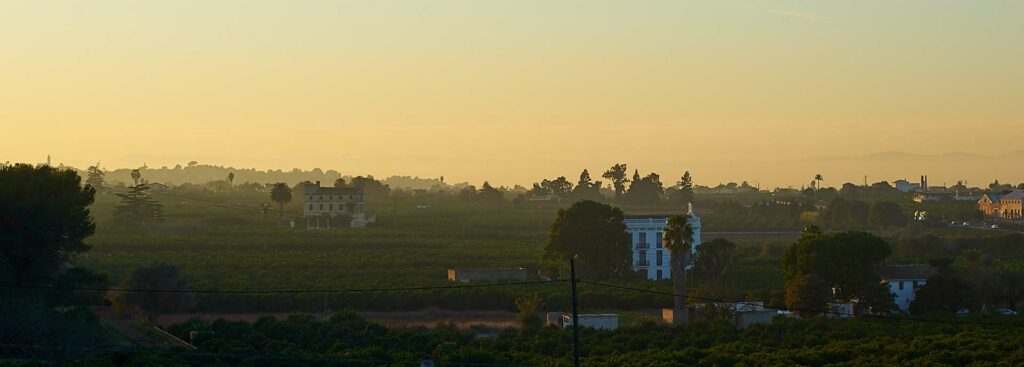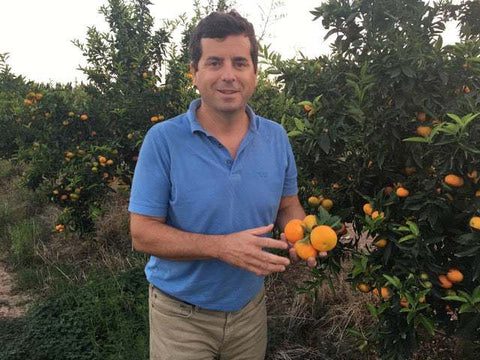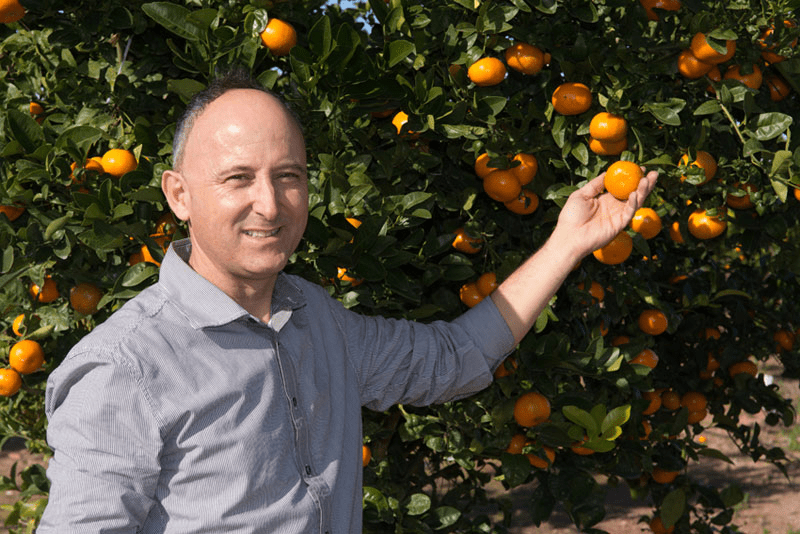Spain and Valencia’s fruit market is under attack by cheap imports from countries with lower standards. Eugene Costello reports…
Spain and Valencia‘s fruit market is under attack by cheap imports from countries with lower standards. Cooperatives attribute the collapse of the citrus market mainly to massive imports from Morocco and Egypt. Both of these countries are outside the EU and not bound by quality regulations. This means that the fruit you buy in supermarkets and fruterías – fruit shops – are often inferior. Moreover, they are leading to an existential threat to farmers and growers in the Comunidad and Spain.
Massive slowdown in domestic production
Harvesting in the field is slowing down and prices of citrus fruits for both fresh consumption and juice are falling, according to Levante-EMV.
Sales in the main producing countries of the Mediterranean basin have soared in the first months of 2024. The second phase of citrus harvesting in the main orange-growing areas of Spain, including Valencia, is already well underway. Spokespeople from Cooperativas Agro-Alimentarias (Agri-food Cooperatives) are warning of the difficult situation that growers are going through due to massive imports. This agricultural sector is condemning the fact that throughout the European Union, purchasing centres are buying fruit “without control from third countries”. These include Morocco, Egypt and South Africa. Such imports are saturating the domestic market and pushing down prices at source, the farm gate and farmers’ markets.
Spain and Valencia’s fruit market under attack
The present 2023/2024 season is producing “a situation that is spreading the ruin of farmers, suffocated by the rise in production costs and the reduction in their harvests due to drought and high temperatures”. The leaders of Agri-food Cooperatives warn that the 2023/2024 citrus season “has taken a 360 degree turn in its second part”. This comes after a start with relatively reasonable prices thanks to the forecast of a short production in production. However, now that the halfway point has been passed and “despite confirming that the volume of oranges is rather low”, prices “have plummeted” in the main citrus-growing areas of the Valencia Region, Andalusia and Murcia.





Now at crisis point
Cooperativas Agro-Alimentarias says that there are multiple factors behind this situation. The president of the citrus working group, Francisco J Bernal, blames “the entry through the ports of oranges and mandarins from third countries, mainly Morocco and Egypt”. In the last year alone, “40 million more kilos of oranges from third countries have entered the European market”, according to data from the Ministry of Agriculture collected by the organisation. This is production that “comes to compete with ours, despite the fact that it arrives with a terrible quality and with no guarantees of food safety”.
Dangers facing citrus growers
Recent interceptions of citrus shipments from third countries found many do not comply with the “phytosanitary” regulations from Brussels. Phytosanitary is documentation that verifies agricultural products have been inspected and are pest- and disease-free. The Spanish and wider European sector is alarmed. They are unanimously demanding that the EU prioritises plant health and the protection of its farmers’ plantations. This must be above the interests of commercial partners and importers. In the case of European citrus fruits, 500,000 hectares are at stake, Cooperativas Agro-Alimenterias claim. This is threatening not only the economy of farms (mostly small and medium-sized family farms), but also the guarantee of supply to EU consumers. And it undermines the social and economic fabric, rural development and the preservation of the environment in the EU’s producer regions.
The Red Sea is becoming the Dead Sea
In the opinion of Francisco J Bernal, the war and the blockade of the Suez Canal also has a serious influence. This situation is preventing oranges from outside the EU from reaching the Asian continent. This production “is being diverted to Europe, causing fiercer competition and collapsing the market”. At the same time, “it is closing our citrus export line to Asia”. There, they have already finished with their own domestic production season. This makes it the moment when they are starting to import.
So what can I do?
There are numerous farmers’ markets in and around Valencia where you can choose to buy direct from growers. There are also a number of farmers and growers that allow you to buy direct for delivery. Links are posted below.
Citrus Ricus
They say: “We are Isabel and Guillermo. We are farmers as the family has been for the last 100 years. We mainly grow oranges and other citrus from Valencia (although we grow other products). We both have university and agricultural training, have been married for 20 years and have three children. Our business is based on bringing the whole family together. And adding other families so that we can supply oranges and citrus all season long. We believe in joining together to be able to improve the product we sell and the orchards where we grow. Year after year we are managing to improve the quality of life of several families. Thus giving a stable and profitable future to all of us who work at Citrus Ricus.”
Naranjas Daniel
They say: “Hello, my name is Daniel Ruiz. And I come from a family that knows agriculture very well. My ancestors were already farmers. They bought the first land in Bétera (in the heart of the province of Valencia) in the early 60s. Today it is a family farm. My father, Daniel, doesn’t hesitate to lend me a hand with anything I need.”
Naranjas Tradicionales
They say: “Buy oranges from Valencia – now much easier! If you know Valencia oranges, their fame transcends borders. They offer a unique quality and exquisite taste. They have become the most popular both for consumption whole or as juice. At Naranjas Tradicionales, you can buy online from the Valencian huerta, straight from the tree to the table or juicer. No middleman, and no refrigerated storage affecting the quality of Valencia oranges.”
Siscaret Citrus
They say: “Are you looking for a reliable place to buy fresh oranges online? Without preservatives and delivered directly from the Valencian groves to your home in less than 24 hours? At Siscaret Citrus we are the answer to all that you are looking for and more! We have the best oranges from Valencia in our online shop. We send them quickly to your home after harvesting, without going through processes that are harmful to your health. We harvest the fruit the same day you place your order to preserve all its freshness and flavour.
“Our biggest secret? The Valencian oranges in our online shop are specially grown in our fields in Corbera (Valencia). And without any kind of preservatives to speed up the harvesting process, so their quality is always optimal.
“Naranjas al día is the result of generations of Valencian farmers. After decades cultivating the best citrus fruits, decided to bypass distribution channels to reach the final consumer directly.”
Quiero Naranjas
They say: “Quiero Naranjas is a Valencian family company located in Alzira. It’s dedicated to the cultivation and sale of natural oranges. Ripened in the sun, without chemical products, of great quality and with a totally natural flavour from the Valencian orchard. And Valencia, and specifically the Ribera area, is one of the most favourable areas for growing oranges due to its mild winters. We sell organic fruit, directly from the tree to your home. We ourselves take care of picking the oranges at the moment and preparing your order. We do not use cold rooms or pesticides, but preserve the authentic flavour and quality of the 100% natural Valencian orange. In addition to citrus, we also grow other natural products. Mandarins, lemons, seasonal fruits, tomatoes, grapefruit, persimmons and products from our land such as organic extra virgin olive oil. All of them always taking care of their authentic flavour.”

